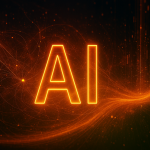As the impact of artificial intelligence continues to ripple across industries, the demand for skilled A.I. professionals is surging in the United States. While tech giants like Microsoft (NASDAQ:MSFT) and Meta (NASDAQ:META) lead the charge in hiring, sectors ranging from consulting to defense and healthcare are also ramping up their A.I. workforce. This expanding interest reflects a broader recognition of the technology’s potential across multiple fields. Companies and institutions are not only investing in A.I. development but also in integrating these technologies into their core operations, aiming to optimize processes and enhance decision-making.
In recent years, major tech firms have consistently shown a strong commitment to A.I., a trend that remains unbroken. Microsoft’s strategic partnerships, particularly with OpenAI, underscore its robust investment in A.I., evident by the substantial rise in its capital expenditures. Previously, Microsoft had already been integrating A.I. solutions across its platforms and services. Similarly, Meta’s recent developments, including its release of Llama 3.2, mark a continual integration of A.I. into its diverse product offerings. These efforts illustrate a persistent drive among tech companies to embed A.I. within their business models.
Why Is A.I. Important for the Treasury Department?
The U.S. Department of the Treasury, notably, has embraced A.I. technology, emerging as a key player in the public sector’s digital transformation. The department’s deployment of A.I.-powered fraud detection tools underscores its innovative approach to handling financial anomalies.
The department recovered $375 million in fraudulent payments in fiscal year 2023 alone.
This advancement highlights the effectiveness of integrating A.I. into governmental functions, showcasing its potential to enhance efficiency and accuracy in public services.
How Are Other Industries Adapting to A.I.?
Among other sectors, defense contractors like Huntington Ingalls Industries are increasingly valuing A.I. Their focus on intelligent defense systems signifies a shift in priorities, reflecting the growing importance of A.I. in national security strategy. Consulting firms, such as Deloitte, are also heavily investing in A.I. partnerships to support clients in navigating this technological era. This trend extends to educational institutions, with Georgia Institute of Technology taking significant steps in preparing the next generation of A.I. professionals.
Healthcare institutions, most notably the Mount Sinai Health System, are at the forefront of incorporating A.I. into medical practices. By developing predictive models and enhancing diagnostic capabilities, Mount Sinai demonstrates the transformative potential of A.I. in health services.
Mount Sinai anticipates integrating A.I. into its software systems extensively within the next few years.
The commitment to leveraging A.I. for improved patient outcomes and operational efficiencies is evident across the sector.
As these entities continue to adapt and invest in A.I., the technology’s integration into diverse domains becomes more pronounced. From improving fraud detection in federal institutions to revolutionizing defense and healthcare systems, A.I. is consistently reshaping operational landscapes. Its potential to drive efficiency, innovation, and growth remains a focal point for these industries.
A.I.’s role in various sectors reveals both opportunities and challenges. For organizations, the continuous demand for skilled professionals highlights the need for adaptive strategies in recruitment and training. As A.I. technologies progress, their integration into operational frameworks will likely require a balance of innovation, ethical considerations, and strategic planning. This evolving digital narrative poses questions about the future workforce and organizational structure across industries.










